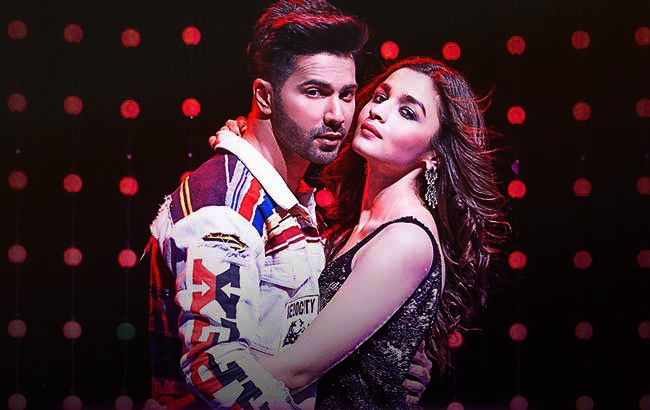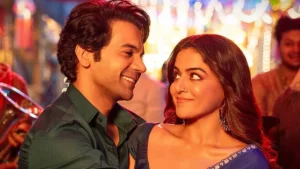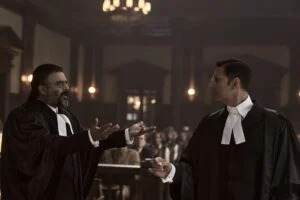
An hour into Badrinath Ki Dulhania, we observe a familiar pattern – of other misled social commentary films from Dharma Productions’ factory. In Karan Johar’ shoddiest directorial till date (My Name Is Khan), we could spot tonnes of soppy melodrama executed in an unmistakably dishonest Muslim backdrop. Tarun Mansukhani’s Dostana in its garb of turning homosexual relationships to dinner table pep talks didn’t show a trace of responsibility. In another endeavour, we saw domesticity veiled with reverse-sexism in Nitya Mehra’s Baar Baar Dekho. Less said the better about Rensil D’Silva’s Kurbaan and Ungli. The common leg here is that each of these films make an ATTEMPT. The insight and the core messaging is clear to the respective makers. It is the process that ends them into embarrassing concoctions that are careless and, often, plain regressive. Shashank Khaitan’s Badrinath Ki Dulhania is nothing but a welcome addition to this dishonourable list.
Dharma films do remarkably well in what is their forte – emotional relationships. Case in point being the much-loved Karan Johar films to Wake Up Sid, 2 States and the recent Kapoor & Sons. It is unfortunate how Badrinath Ki Dulhani arrives with an ‘issue-based’ label (or burden?) – ugh, we almost sense the director’s misplaced pride and the actors’ naivety. Yes, the film is undeniably funny – more for the actors’ energies, cutesy dialect and forced quirks than actual humour (arguable). There are issues that the film tries to communicate – one about commoditization of marriages in the Hindi heartland with the groom being an ‘asset’ and the bride a ‘liability’. Well, this is no unchartered territory. The second issue and comparatively more fascinating is that of a girl who dares to dream. A convenient subject for our ‘activist’ makers, good films (say, Queen) have tackled this with great maturity. The female protagonist here is Vaidehi (Alia Bhatt) who has had a bad run-in with finances. She speaks decent English for a small-towner and aspires to be an air-hostess. She says all things right – but with the spirit of a Beti Bachao activist (if you get the difference!). Vaidehi’s immediate plan is to see her sister Krithika (Sukhmani Lamba) “settled”. Along with our leading man Badrinath (Varun Dhawan), she plots a plan to interview suitors. No, her sister isn’t looking for a man who would love, respect and empower her. A Hrithik Roshan prototype is just enough to fit her bill. Fair enough! But, isn’t Vaidehi compromising her principles there? Isn’t she a part of turning her beloved sister into a devalued commodity in the so-called marriage market? Vaidehi is also mindful of her father’s health (caricaturized for some low-brow humour). Her impulsive decision (which is the twist in the tale) jeopardizes every initial motive of hers! Here ends the first half which more or less proves Khaitan’s ability to play around with local Hindi dialects. There’s also a Bhojpuri version of ‘Baby Doll’ number plugged in because you know – being vernie is funny. Kangana Ranaut might not agree though!
Till this point, the film vaguely resembles one of the production house’s better films – Hasee Toh Phasee. That film, despite its meaningless title, had a strongly written central character and some solid emotional background to boot. Alia’s Vaidehi is so confused in her own empowered skin that we tend to take Badri’s side. His mindset is regressive but is entitled to play the innocence ‘card’. After all, he’s just a 10th fail nikamma who’s happens to be a family asset, thanks to those dangling bits. Vaidehi, on the other hand, breeds this oh-so-cute burden of guilt which makes her succumb to all of Badri’s questionable actions. He even beats up a guy who sort of interacts with her, who happens to be a air hostess trainee in a city like Singapore. There are moments where the actors shine and nearly force-sell the film with their spirit and honesty. However, the dreary second half lags beyond belief to soon crash land to a conveniently insipid climax.
As the film ends, you wonder why and how the story was conceived. The core idea of the marriage mafia is always worth exploring, only if the film were to shed its shallow perspective. Also, it stoops way too low in attempting to evoke laughter. Our leading man and his Man Friday tote the swankiest of gadgets, drives sexy vehicles (even in Singapore) but can barely spell an English word to save their lives. Amongst several ghastly examples, we see a man getting sexually assaulted with the theatre revving into uproarious laughter – summing up everything that is wrong with our society, cinema and the rest. The funniest moment is a rather unintentional one though – when Badri after all of his public manhandling, stalking, an abduction attempt and never-ending shameless display of privilege – “Did I ever hurt you? Misbehave with you?” We get you, Mr. Khaitan!
Highly middling on technical fronts, performances don’t help the film much either. Varun Dhawan is sincere as the swashbuckling desi youngster with a weirdly inconsistent local slang. His gym-toned body is still a misfit for his cheeky persona which is glaringly different for this generation of actors. Although it is tough to fathom Alia Bhatt in this apology of a film, the lovely actor is reliable throughout. Her confrontations are a treat to watch, especially the one outside her training institute when Badri attempts to barge in. Sahil Vaid is a scene stealer but aren’t we done with those de-glamourized, funny line-spouting, friend-zoned sidekicks anyway? Anything for our hero’s desirability. How about a chick magnet of a friend who hooks up with more women than the leading man himself? Sukhmani Lamba has a fresh face and is a decent actor. Rest of the cast is royally wasted, including the super-talented Shweta Basu Prasad.
On the whole, Badrinath Ki Dulhania is akin to those moral science lessons in school days imparted by an obviously amoral teacher. Similar to the recently released Kaabil, this film normalizes a whole lot of wrong ideas that are inculcated and practiced in the society, only to serve an in-your-face social commentary that even our right wing maryada ke thekedaar Censor Board would jizz over. Shamefully patriarchal (in garb of equality) and preachy to brazen extents, the film is excruciatingly long, filled with a long list of monotonous songs. In what could have been a golden opportunity to serve a good message to smaller towns and villages, the film is an atrocious attempt where the director himself seems to have run for cover. The material, after all…
Rating: ★★

